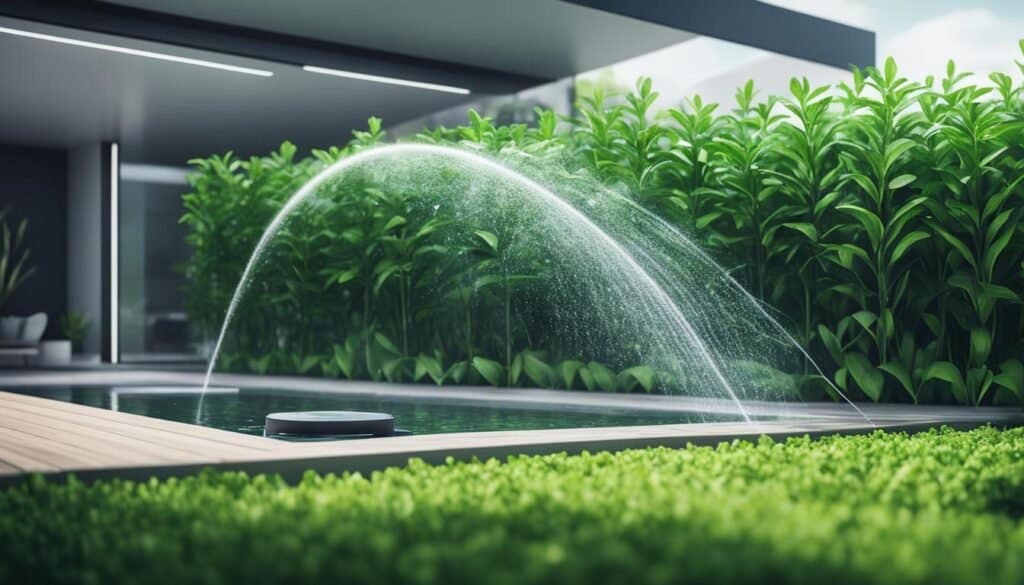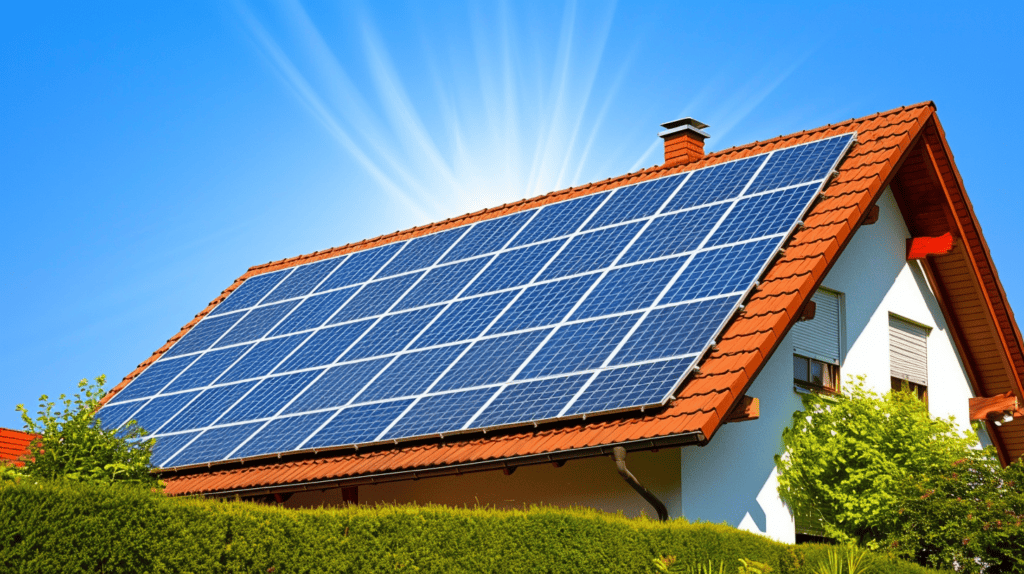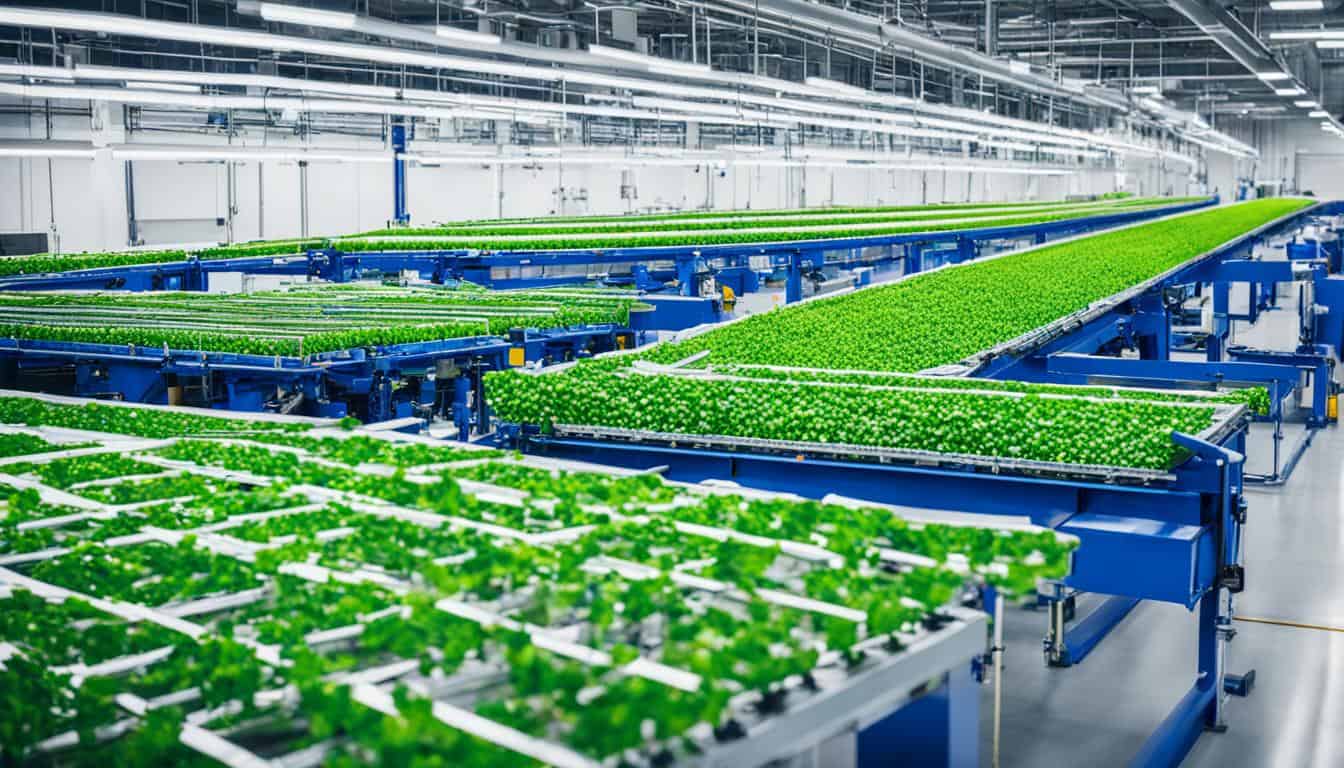As we embrace a greener lifestyle, the development and integration of energy-efficient tech have become crucial in sustainable living. Smart home technology has revolutionized our living spaces by optimizing energy consumption and promoting the use of renewable energy sources, such as solar energy.
Not only do these technologies reduce our environmental impact, but they also contribute to a more sustainable future by streamlining energy integration and fostering a sustainable lifestyle. By harnessing the power of sustainable technologies, we can create a future that prioritizes energy efficiency and renewable energy integration for many generations to come.
Key Takeaways
- Energy-efficient tech plays a vital role in promoting sustainable living and a greener lifestyle.
- Smart home technology optimizes energy consumption and reduces environmental impact.
- Renewable energy sources, like solar energy, are becoming more seamlessly integrated into our daily lives.
- Embracing energy efficiency and renewable energy integration creates a more sustainable future for all.
- By harnessing sustainable technology, we can create a better future that prioritizes ecological stewardship and environmental sustainability.
Understanding the Fundamentals of Smart Home Technology
The essence of smart home technology lies in its ability to connect, automate, and efficiently manage a home’s resources. Over 47 million households are expected to utilize this technology by 2023, with the energy management segment showing the most promise for growth. Smart home systems grant users control over various devices in their living space, offering numerous advantages and contributing to a more sustainable lifestyle.
Energy efficiency is one of the key benefits of smart homes, allowing homeowners to monitor and manage their energy consumption in real-time. Devices like smart meters, thermostats, and lighting employ IoT technology to optimize energy usage and help users trim their utility bills. Hence, the adoption of these smart home devices can lead to substantial savings.
StartUs Insights highlights the innovation of Kanin Energy in developing a waste heat-to-power conversion system, which converts waste heat into electricity, enhancing energy efficiency in industries like iron and steel.
Besides energy management, smart homes also provide an opportunity to integrate renewable energy sources, such as solar, into the household. This sustainable approach not only reduces the reliance on conventional energy grids but also contributes to a greener environment.
Another aspect of smart homes that makes them indispensable in our quest for sustainability is the integration of various devices and systems. From thermostats to lighting and security, smart homes offer a seamless experience, making them an integral part of our everyday lives and pushing us closer to smarter energy use and overall sustainability.
Smart homes are revolutionizing the way we manage and conserve our resources, ensuring a more efficient and sustainable future.
Understanding the fundamentals of smart home technology is crucial in embracing its numerous advantages. Smart homes are paving the way for a more sustainable, efficient, and eco-friendly lifestyle by optimizing energy consumption, integrating renewable energy sources, and seamlessly connecting various devices. As the smart home market grows, we must harness this technology for sustainable living.
Maximizing Energy Efficiency with Smart Thermostats and Lighting
With the rise of smart home technology, smart thermostats, and intelligent lighting systems have emerged as key components in optimizing energy usage and promoting a greener lifestyle. These devices offer significant energy savings, reduced utility bills, and a smaller environmental footprint. In this section, we will discuss the important role smart thermostats and lighting systems play in energy management and explore their real-world impacts on energy consumption.
The Role of Smart Thermostats in Reducing Energy Consumption
Smart thermostats have revolutionized the way we manage our home’s heating and cooling systems. By leveraging smart sensors and learning user behavior patterns, these devices optimize temperature control, minimizing energy wastage and reducing energy consumption. According to the U.S. Department of Energy, a smart thermostat can save up to 10% on heating and cooling costs annually, resulting in tangible financial and environmental benefits.
Intelligent Lighting Solutions for Energy Savings
Intelligent lighting systems, another cornerstone of smart home tech, offer significant energy savings by adjusting illumination based on occupancy and daylight levels. These systems utilize energy-efficient technologies like LED lighting and smart sensors to reduce the need for artificial lighting. By maximizing the use of natural light and employing energy-saving technologies, smart lighting systems effectively reduce overall energy consumption and utility costs.
Real-world Impact of Smart Thermostats on Utility Bills
The potential savings offered by smart thermostats are substantial. In fact, smart home devices can provide up to 20% savings on heating and cooling costs for homeowners, equating to an annual reduction of about $180 in utility bills. This highlights the potential of smart technology to alleviate both energy usage and financial burden on consumers.
| Device Type | Annual Energy Savings | Environmental Impact |
|---|---|---|
| Smart Thermostat | Up to 20% | Reduced carbon emissions |
| Intelligent Lighting System | Dependent on usage and technology | Reduced energy consumption |
Both smart thermostats and intelligent lighting systems prove instrumental in improving energy efficiency and transforming our homes into more environmentally conscious spaces. As more homeowners embrace smart home devices to optimize energy usage, the combined impact of these technologies will contribute to a greener, more sustainable future for all.
Water Conservation Strategies in Smart Homes

As environmental sustainability becomes a priority, smart homes are playing a pivotal role in water conservation. Implementing innovative water management systems and technologies helps reduce water wastage, contributing to a greener lifestyle.
Smart Irrigation Systems for Optimal Water Usage
Smart irrigation systems showcase the prowess of smart home technology in water conservation. These systems analyze environmental data and soil moisture to adjust water usage according to plant needs. This tailored approach can reduce water consumption by up to 50%, actively contributing to addressing global water scarcity concerns while providing cost savings on water bills.
Advancements in Leak Detection Technologies to Save Water
Another testament to smart homes’ role in water conservation is the advancement of smart leak detection technologies. These devices provide immediate alerts to any leaks, allowing homeowners to promptly address potential issues. By preventing water wastage, smart water leak detectors fortify the sustainability of our living environment.
The Importance of Water Management in Smart Homes
Water management in smart homes is a critical component of environmental sustainability. Technologies like smart leak detectors play a vital role in the efficient use of water resources. Integrating these innovations is essential for building homes that are not only intelligent but also sustainably responsive to the earth’s dwindling natural resources.
Energy-Efficient Tech for Sustainable Living

As the world moves towards more eco-friendly ways of living, integrating renewable energy sources and optimizing energy consumption are becoming increasingly important. Smart homes serve as trailblazers in this transformation, ushering in a sustainable lifestyle that reduces our carbon footprint and energy usage. Let’s delve into the integration of renewable energy into smart homes, the evolution of energy-efficient appliances, and the overall contribution of smart homes to a sustainable way of living.
Integrating Renewable Energy Sources into Smart Homes
Integrating solar panels and other renewable energy technologies into smart homes is essential for sustainable living. This synergy allows for reduced reliance on fossil fuels and enhances the production and consumption of clean energy within the home. With continuous advancements in technology, the process of integrating renewable energy sources becomes more streamlined, strengthening the bond between smart homes and a greener future.
The Evolution of Energy-Efficient Appliances and Their Benefits
Smart appliances have become more sophisticated and communicative, optimizing their performance based on real-time data. This results in reduced energy consumption and a considerable positive impact on the environment, while also lowering utility costs for homeowners. Examples of energy-efficient appliances include smart refrigerators, washing machines, and air conditioning systems, all of which contribute to a sustainable living environment.
How Smart Homes Contribute to a Sustainable Lifestyle
Smart homes equipped with energy-efficient technologies and systems play a significant role in promoting sustainable lifestyles. These innovations enable the effective management of energy consumption within our living spaces, thereby reducing carbon footprints and enhancing environmental benefits.
As more and more people become aware of the advantages offered by smart homes, the adoption of smart home technology emerges as a crucial step towards harmonizing our lives with the principles of sustainability.
Security and Safety Aspects of Energy-Efficient Smart Homes

Security and safety are paramount in energy-efficient smart homes, where advanced security systems meld with conservation technology. Homeowners increasingly opt for comprehensive home security systems that not only safeguard their homes but also align with sustainable practices through judicious energy usage.
An essential element of smart home security is the integration of carbon monoxide detectors and fire alarms. These devices provide timely alerts in case of emergencies, helping protect both the occupants and the environment. Fire alarms, particularly those with interconnected features, can minimize fire damage and the associated carbon emissions by rapidly prompting evacuations and firefighting efforts.
Apart from intrusion alarms and hazard sensors, energy-efficient smart homes often feature smart plugs with built-in surge protection. By monitoring and controlling energy consumption, these devices not only conserve energy but also avert potential electrical hazards and damage to appliances.
Furthermore, smart home security includes the ability to monitor and manage the household remotely. This aspect enables residents to have real-time control over their home’s safety measures, such as turning off devices or appliances when not in use, hence reducing energy consumption. Remote monitoring capabilities not only elevate safety but also contribute to reduced energy consumption and carbon emissions, affirming the dual role such tech plays in fortifying both the security and sustainability of our homes.
As the world leans towards sustainable living practices, the security and safety aspects of energy-efficient smart homes have become an indispensable part of modern homeownership. With comprehensive home security systems, carbon monoxide detectors, fire alarms, smart plugs, and energy-conserving technologies at our fingertips, we can create an environment that prioritizes both safety and eco-friendliness.
Conclusion on Energy-Efficient Tech for Sustainable Living
As we navigate our way toward a more sustainable future, the incorporation of smart home technology in our daily lives has proven to be a valuable ally in achieving greener lifestyles. By maximizing energy efficiency through innovations such as solar panels and energy-efficient lighting, we not only benefit from reduced energy consumption but also contribute to a sustainable home environment. Embracing a sustainable lifestyle goes beyond simply following a trend; it is a commitment to a future in which technology and environmental stewardship work hand in hand, preserving our planet while enhancing the wellbeing of its inhabitants.
The prospects of sustainable living and a greener lifestyle can only be fully realized with the integration of smart home technology, which combines convenience and environmental responsibility. A sustainable future, built on the foundation of energy-efficient solutions and the wise use of natural resources, helps us develop living spaces that are both eco-friendly and comfortable.
As more people begin to recognize the potential of smart home technology for sustainable living, the demand for such sustainable solutions is set to rise further. By committing ourselves to green practices and exploring the technology available for sustainable living, we can work towards a brighter, healthier, and more sustainable future for generations to come.
FAQ on Sustainability In Your Living Space
Q: How can solar energy contribute to a sustainable future?
A: Solar energy can significantly contribute to a sustainable future by replacing non-renewable sources of energy. The power of smart home technology can be used to manage energy storage and consumption from solar panels effectively. It ensures minimal energy waste and encourages the production of energy from renewable sources.
Q: In what ways can technology for sustainable living reduce our energy consumption?
A: Technology for sustainable living like smart home tech can drastically reduce our energy consumption by providing tools for real-time energy monitoring. These tools allow us to understand our energy consumption patterns and identify areas where unnecessary energy is being used, thus providing us with the ability to optimize energy use within our homes.
Q: How does solar panel installation lead to a greener future?
A: Solar panels lead to a greener future as they utilize sunlight, a renewable source of energy, for power. They significantly reduce energy waste as any excess energy produced during the day can be stored for later use. Embracing solar use is a huge step towards the adoption of sustainable energy solutions.
Q: How does the power of smart home technology help in building a sustainable future?
A: The power of smart home technology lies in its ability to help homeowners monitor their energy availability and consumption in real time, enabling them to eliminate unnecessary energy consumption. This technology can also efficiently manage the energy production and storage from renewable resources like solar panels, leading to a greener and more sustainable future.
Q: How can smart home tech contribute to a greener lifestyle?
A: Smart home tech can contribute to a greener lifestyle by utilizing technology to create systems that optimize energy usage and reduce waste, leading to lower energy consumption overall. This significantly means less energy is generated from non-renewable sources, leading to a more sustainable and eco-friendly living environment.
Q: What are some ways in which smart home technologies can be utilized for enhanced energy efficiency?
A: Some ways in which smart home technologies can be used for enhanced energy efficiency include real-time energy monitoring, managing energy storage, and automatically turning off devices when not in use. These practices optimize unnecessary energy use, making homes more energy efficient.
Q: Can the adoption of sustainable tech enhance the efficient use of energy?
A: Yes, the adoption of sustainable tech such as smart home technologies can greatly enhance the efficient use of energy. These technologies detect and manage unnecessary energy use, thereby ensuring homes use less energy and therefore rely less on non-renewable energy sources.
Q: What role does energy storage play in building a sustainable future?
A: Energy storage plays a crucial role in building a sustainable future. It enables the storage of excess energy produced by renewable resources like solar panels for use when energy production is low. This ensures continuous availability of renewable energy sources, making homes sustainable, and eco-friendly.
Q: How does lowering energy consumption lead to a greener and more sustainable lifestyle?
A: Lowering energy consumption directly leads to a reduction in the use of non-renewable energy sources, promoting the use of sustainable power sources. Reduction in energy use, especially unnecessary consumption, builds towards a more sustainable lifestyle and contributes to a greener future.
Q: In what ways can the technology for energy monitoring help towards achieving sustainable living?
A: Technology for energy monitoring helps in achieving sustainable living by constantly tracking energy usage and providing real-time insights into consumption patterns. This timely information enables the optimization of energy usage, making homes efficient and paving the way towards a more sustainable and green future.





Leave a Reply